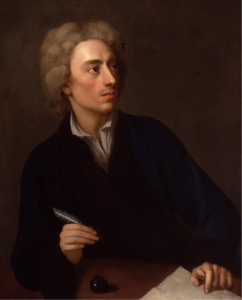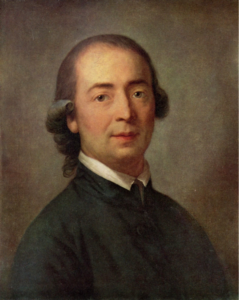Transfiguration
(Poet's title: Verklärung)
Set by Schubert:
D 59
[May 4, 1813]
Lebensfunke, vom Himmel erglüht,
Der sich loszuwinden müht,
Zitternd, kühn, vor Sehnen leidend,
Gern und doch mit Schmerzen scheidend!
End’, o end’ den Kampf, Natur!
Sanft ins Leben
Aufwärts schweben,
Sanft hinschwinden, lass mich nur.
Horch, mir lispeln Geister zu:
“Schwesterseele, komm zur Ruh!”
Ziehet was mich sanft von hinnen,
Was ists, was mir meine Sinne,
Mir den Hauch zu rauben droht?
Seele! sprich, ist das der Tod?
Die Welt entweicht, sie ist nicht mehr.
Engel-Einklang um mich her!
Ich schweb im Morgenrot.
Leiht, o leiht mir eure Schwingen,
Ihr Brüder, Geister! helft mir singen:
“O Grab, wo ist dein Sieg? Wo ist dein Pfeil, o Tod?”
Spark of life, with the glow of heaven,
Which is striving to release itself!
Trembling, bold, suffering from longing,
Leaving willingly, though with pain –
End, oh end this battle, nature!
Gently into life,
Rising upwards,
Just let me fade away gently.
Listen! spirits are whispering to me:
“Sister soul, come to your rest!”
Is something gentle pulling me away?
What is it that is threatening my senses,
That is threatening to steal away my breath?
Speak, soul, is this death?
The world is escaping! It is no more!
Angelic harmonies all around me!
I am hovering in the red light of dawn!
Lend me, oh lend me your wings,
Brother spirits! help me sing:
“Oh grave, where is your victory? Where is your arrow, oh death?”
All translations into English that appear on this website, unless otherwise stated, are by Malcolm Wren. You are free to use them on condition that you acknowledge Malcolm Wren as the translator and schubertsong.uk as the source. Unless otherwise stated, the comments and essays that appear after the texts and translations are by Malcolm Wren and are © Copyright.
☙
Themes and images in this text:
Bows and arrows Breath and breathing Brothers and sisters Farewell and leave taking Fighting and wrestling Fire Flying, soaring and gliding Graves and burials Harmony Heaven, the sky Heavenly choir Morning and morning songs Rest Songs (general) Soul Wings
Vital spark of heav'nly flame: Quit, oh quit this mortal frame: Trembling, hoping, ling'ring, flying, Oh the pain, the bliss of dying! Cease, fond Nature, cease thy strife, And let me languish into life. Hark! they whisper; Angels say, Sister Spirit, come away. What is this absorbs me quite? Steals my senses, shuts my sight, Drowns my spirits, draws my breath? Tell me, my Soul, can this be Death? The world recedes; it disappears! Heav'n opens on my eyes! my ears With sounds seraphic ring: Lend, lend your wings! I mount! I fly! O Grave! where is thy Victory? O Death! where is thy Sting? Alexander Pope, The Dying Christian to his Soul
Verklärung, Herder’s German title for Pope’s ‘The Dying Christian to his Soul’, is usually translated into English as ‘transfiguration’. As when Jesus’s disciples saw him transformed and appearing to converse with Elijah and Moses, the term refers to a sudden change in perception that relates to some sort of new spiritual understanding. In Mark (9:2) and Matthew (17:2) the Greek word used is ‘metamorphosis’, but the emphasis is not on the changed outer form but the subjective experience of those present. The disciples are temporarily aware of an aura of holiness that is otherwise opaque to them.
Thus it is with the process of dying as presented in this proto Gerontius. The speaker, moving from life to death (the first and last words of Herder’s text) is dealing with two parallel and contradictory realities: falling into the grave (with its associated images of rest, falling asleep etc.) and soaring upwards to join the heavenly choir (with a cluster of images based on flight). This is the death struggle itself, with the competing desires of the body to survive and to die, but it is also the inner transformation of the soul brought about in a process of transfiguration: the competing forces fuse and are seen as being complementary.
Transfiguration is an ‘out of time’ experience. Jesus’s disciples had a vision of him after death conversing with symbolic dead figures (Moses representing the Law and Elijah the Prophets), but it was not a vision of Christ’s death itself. Similarly ‘the dying Christian’ need not be the individual on the deathbed for in the midst of life we are in death. We can have a vision of our mortality at any time. Schubert was only 16 (as it happens, in the midst of his short life), when he set this text to music.
☙
Original Spelling and notes on the text Verklärung Lebensfunke, vom Himmel erglüht, Der sich loszuwinden müht! Zitternd, kühn, vor Sehnen leidend, Gern und doch mit Schmerzen scheidend - End', o end' den Kampf, Natur! Sanft ins Leben Aufwärts schweben, Sanft hinschwinden laß mich nur. Horch!, mir lispeln Geister zu: "Schwester-Seele, komm zur Ruh!" Ziehet was mich sanft von hinnen? Was ists, was mir meine Sinnen, Mir den Hauch zu rauben droht? Seele sprich, ist das der Tod? Die Welt entweicht! Sie ist nicht mehr! Engel-Einklang1 um mich her! Ich schweb'2 im Morgenrot! Leiht, o leiht mir eure Schwingen, Ihr Brüder-Geister! helft mir singen: "O Grab, wo ist dein Sieg? Wo ist dein Pfeil, o Tod?" 1 Schubert changed 'Harmonieen' (harmonies) to 'Engel-Einklang' (angelic harmonies) 2 Schubert changed 'schwimm'' (swimming) to 'schweb'' (hovering)
Confirmed with The Works of Alexander Pope Esq., Volume I, containing his Juvenile Poems. London, printed for H.Lintot, J. and R.Tonson, and S.Draper, MDCCLII, pages 133-134.
Confirmed by Peter Rastl with Schubert’s possible source, Badisches Magazin. 1811. Erster Band. März, April, May, Juny. Nro 1 bis 103. Bey Kaufmann in Mannheim pages 90-91; and with Zerstreute Blätter von J.G.Herder. Zweite Sammlung. Gotha 1786, bey Carl Wilhelm Ertinger, pages 375-376.
The poem is part of Herder’s essay “Wie die Alten den Tod gebildet: ein Nachtrag zu Leßings Abhandlung desselben Inhalts”.
To see an early edition of the text, go to page 90 [Erstes Bild 100] here: https://download.digitale-sammlungen.de/BOOKS/download.pl?id=bsb10531589



